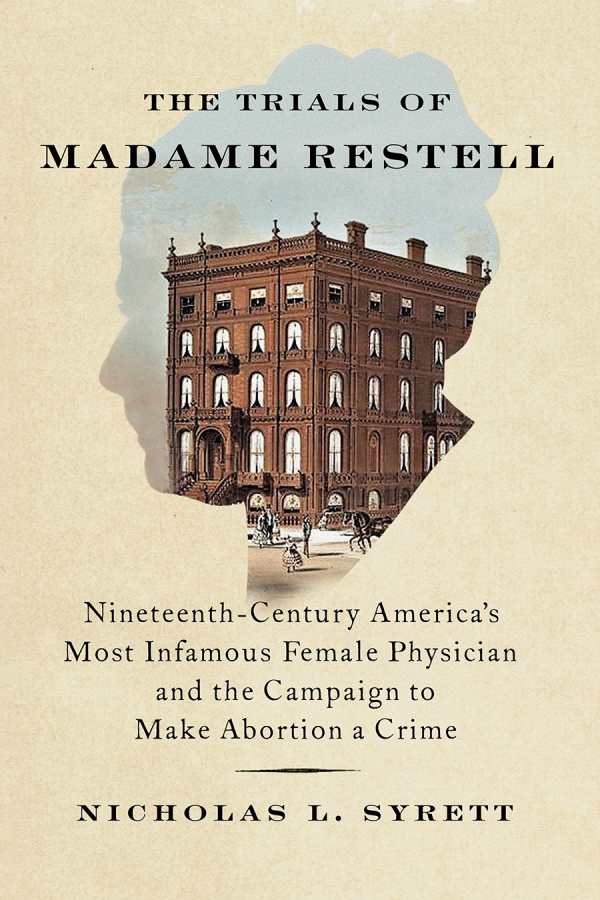The Trials of Madame Restell
Nineteenth-Century America’s Most Infamous Female Physician and the Campaign to Make Abortion a Crime
A sobering dispatch from a past marked by familiar prejudices, The Trials of Madame Restell is Nicholas L. Syrett’s consequential biography of a woman who defied changing norms to protect women’s health.
Ann Trow—later known as Madame Restell—was born in England in 1811. She, her husband, and her only child immigrated to the US in 1931; within a year, she was a widow. There were few options for single mothers. Within three years, Ann remarried—to Charles Lohman, a man of growing fortunes who supported her ambition to be a physician at a time when medicine was in flux and women’s horizons were expanding. For those who wanted to prevent pregnancy, address unwanted pregnancies, or otherwise be in command of their own reproductive health: Madame Restell had the answers.
Syrett places Lohman’s work in historical context, with reminders that the medicines and methods that she sold were common knowledge among women in previous generations––employed often, without the moralistic angst that plagued Lohman’s era. He reveals that the mid-century rush of immigrants fed into the xenophobic worries of extant Americans, who didn’t want the birthrates of poor, once-foreign people to outpace their own. Nor did wealthy and middle class American men relish the idea of their wives and daughters having the option to delay or forego motherhood. Thus, even as Lohman’s work made her wealthy, it put her in the crosshairs of men like Anthony Comstock, a puritanical organizer who worked to outlaw material, and procedures, that he deemed obscene. In the decades across which she worked, she was accused of performing illegal abortions and of kidnapping; she was jailed more than once. Still, she persisted.
The Trials of Madame Restell is a respectful, thorough portrait of a brave woman who defied her era’s norms to give women reproductive options.
Reviewed by
Michelle Anne Schingler
Disclosure: This article is not an endorsement, but a review. The publisher of this book provided free copies of the book to have their book reviewed by a professional reviewer. No fee was paid by the publisher for this review. Foreword Reviews only recommends books that we love. Foreword Magazine, Inc. is disclosing this in accordance with the Federal Trade Commission’s 16 CFR, Part 255.

